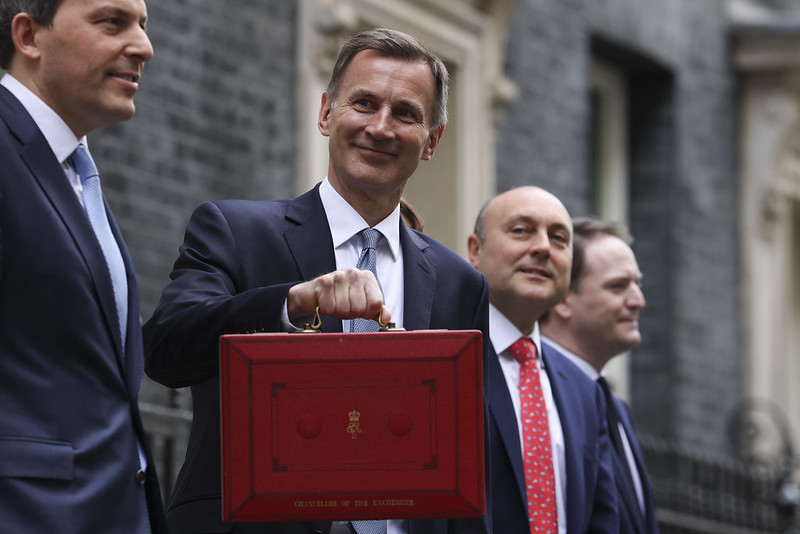
Jeremy Hunt says he has set out a Budget for UK growth – but the property industry argues it has been given the “cold shoulder” by the Chancellor.
Forecasters said the government had around £30bn extra to spend due to lower energy costs than previously expected last year.
The fiscal statement also came amid an upbeat forecast from the Office of Budget Responsibility, which said the UK would avoid a recession this year with the economy falling by 0.2% in 2023, as opposed to a predicted 1.4% annual fall in its November report.
The economy watchdog adds that it expects inflation to tumble to 2.9% by the end of the year, from 10.1% currently.
However, the Chancellor choose to spend the cash available to him on such areas as extending the energy price cap, allowing larger pension pots and expanding free childcare.
Labour leader Keir Starmer said in his Budget response that “there was no real ambition on housebuilding”.
Property professionals expected the Budget to be constrained, but had hoped to see some action on such issues as looser planning rules, green homes, stamp duty reform, or landlord tax exemptions.
But there was little in these areas, with the sector greeting the statement with a mixture of disappointment and resignation.
House Buyer Bureau managing director Chris Hodgkinson says: “The property market has been treading water since last September’s shambolic mini-Budget and we were looking to the Spring Statement for a shot in the arm.
“Unfortunately this hasn’t materialised and the nation’s homebuyers have been shown the cold shoulder once again. While we expect the market to hold fairly firm over the coming year, it’s extremely unlikely that house prices will now rally and the pandemic highs of previous years will be resigned to the record books.”
The firm adds that so far this year buyers have purchased just 43% of available housing stock on the market, down from 60% in 2022 and 63% in 2021. Mortgage approvals have fallen by 20% between 2021 and 2022.
Taking this into account, Leeds Building Society chief executive Richard Fearon says the Budget was “a missed opportunity to grow the economy by addressing the UK’s home ownership crisis caused by a lack of housing and show support for savers.
“While it is particularly positive to see support for families with young children struggling with the cost of childcare, we know that owning your own home also brings huge economic, education and health benefits.
“With the affordability of home ownership now at its worst point for 150 years it is clear that support for first-time buyers must be a key battleground at the next General Election.”
Rose Capital Partners founder Richard Campo says he is “disappointed” with the Budget as “the consequences of inaction are now really biting”.
Campo adds: “Firstly, we need to build more homes. According to the think tank, Centre for Cities, at the current rate, it will take us 50 years to catch up with demand, even if we started building 300,000 homes a year, which we are not currently doing.
“It’s time for the government to step in and focus on newer construction methods, create more jobs, keep house prices lower over the long term, increase the number of first-time buyers and make more affordable rental homes available. There are strong economic arguments for doing so.
“Secondly, we need to reverse the tax treatment on buy-to-let properties that was introduced in April 2016. Rents are soaring due to landlords exiting the market, and this will only get worse before it gets better. This is only a small revenue earner for HMRC in relative terms.”
SPF Private Clients chief executive Mark Harris says: “It is hugely disappointing that the Chancellor didn’t introduce any measures to improve the lot of the FTB.
“With the soaring cost of living, getting on the housing ladder has become harder than ever and measures to help those struggling to buy their own home would have been welcome.
“The housing market is a significant contributor to the overall health of the economy and it is hard not to feel that Jeremy Hunt missed a trick by not introducing any measures to stimulate activity.
“On the plus side, the inflation outlook is encouraging, which should help bring interest rates back down and continue to make mortgage pricing more palatable to borrowers.”
However, some observers wonder whether being ignored by the Chancellor might turn out to benefit the sector.
Former Royal Institution of Chartered Surveyors residential chairman Jeremy Leaf, points out: “We wanted to see more from the Chancellor, particularly with regard to increasing supply of new homes to keep prices in check, as well as increased support to encourage new landlords and discourage others from leaving the sector.
“In some ways it could be seen as a positive Budget in that the Chancellor left the housing sector well alone. Housing makes such a significant contribution to economic prosperity due to its multiplier effect so is sensitive to even small changes.
“More specifically, the housing market is all about confidence and sometimes you can do more damage by tinkering, so we will give him a B-plus for effort and not doing anything which could have been harmful and compromised activity.”



